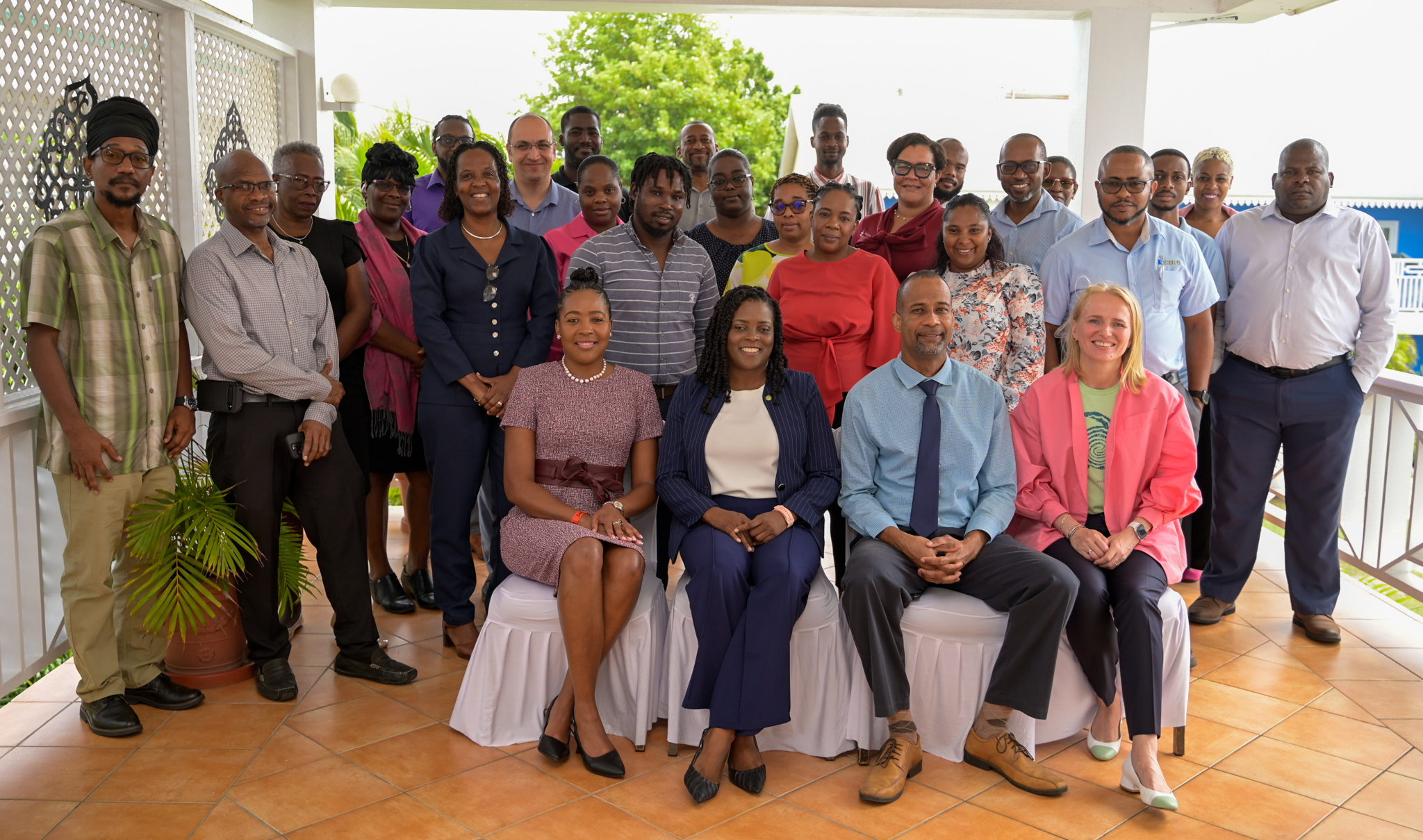Innovating for Better Data: OECS Leverages Drone Imagery Technology in Saint Lucia
OECS Media Release
Under the auspices of the World Bank-funded OECS Data for Decision Making project, the Organisation of Eastern Caribbean States (OECS) Commission, in collaboration with the United Nations Institute for Training and Research (UNITAR), and with the support of the United Nations Statistics Division (UNSD) and the Federal Institute of Technology Zurich (ETH Zurich), successfully hosted a workshop entitled "Experimental Design and Implementation Arrangements: Use of Unmanned Aerial Vehicle (UAV) Imagery to Produce Official Statistics in Saint Lucia".
This workshop took place from June 24 to June 26, 2025, and involved stakeholders from Saint Lucia's National Statistical System (NSS), mainly administrative data producers, focusing on methods and aims to enhance population estimates and improve socio-economic data availability, especially in informal settlements, through the strategic use of UAV (drone) imagery.
At the workshop’s opening ceremony, Mr. Sean Mathurin, Director of Statistics, Central Statistics Office (CSO) in Saint Lucia, highlighted the innovative application of UAV imagery across various sectors:
“This innovative approach is being applied by other ministries, departments, agencies, and sectors, including agriculture, urban planning, environmental monitoring, disaster management, and infrastructure development. The integration of UAV imagery enhances the CSO’s ability to collect timely, accurate, and high-resolution data, especially in areas that are otherwise difficult to access.”
Ms. Valrie Grant, Strategic Advisor on Geospatial Matters to the OECS Commission, emphasised how the lack of geospatial data affects small island states. She said:
“Those of us who call the Caribbean home don’t need to be convinced about the urgency of better data. We live the consequences of missing information and outdated maps. We know what it’s like when a community is invisible in the statistics and therefore invisible in the planning. We’ve watched storms redraw our coastlines, seen informal settlements swell as families search for safer ground, and felt the weight of recovery without the clarity of data to guide it.
“I want to underscore that this isn’t just about producing better models—it’s about producing better outcomes. This work—if we do it right—will help us target services more effectively, respond to disasters more quickly, and design climate adaptation plans that are actually grounded in the reality of people’s lives.”
Ms. Sherma Beroo, Project Manager of the DDM Project, added in her remarks on how quality data collection and integration following this pilot initiative is an avenue for many more resources:
“The hope is that once this method is successful, it therefore becomes something that is adoptable and adaptable for all our Member States, noting that harmonization is essential to the OECS as it promotes economic integration, regional cooperation, standardization, data collection and analysis, enhanced credibility, improved governance, and supports sustainable development. By continuing to harmonize policies, laws, and regulations, the OECS can create a more integrated and cohesive region, ultimately contributing to the social, economic, and environmental well-being for all.”
During the workshop, participants engaged in collaborative working sessions aimed at exploring:
- How drone technology can integrate with existing data sources such as censuses, household surveys, and citizen data.
- The use of UAV technology to improve our understanding of population dynamics and infrastructure vulnerabilities. In doing so, it supports better decision-making in urban planning, risk management, and sustainable development.
- Building the capacity of national data producers in Geographic Information Systems (GIS) and the integration of UAV technology into official statistics.
Ultimately, the OECS envisions this approach as a model that can be adapted and scaled across its Member States. Building a strong and secure domestic drone sector is vital to reducing reliance on foreign sources, strengthening critical supply chains, and ensuring that the benefits of this technology are delivered to the OECS. By advancing innovations in data collection and fostering regional collaboration, the OECS continues to promote economic integration, good governance, and sustainable development throughout the region.
Claudia Mc Dowell
OECS Communications Unit
















